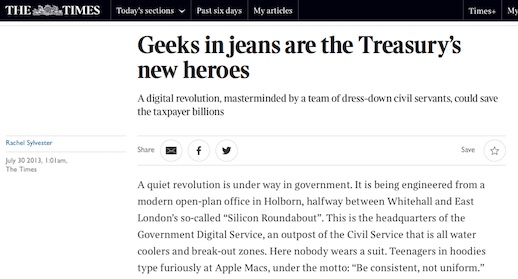This article is more than 1 year old
Memo to Mark Sedwill: Here's how to reboot government IT
This time use people who know what they're doing
Disruptive? Yes. But not in a good way
GDS promoted Agile methods as a magic cure, mesmerising their political supporters in Whitehall. GDS's "Agile showcase" was the CAP payments system for farmers – this was scrapped at a cost of £177m, landing the UK with an additional £600m fine for late payments.
However, Weerakkody noted: "I haven't found any examples of where Agile has worked in big projects. HMRC have managed their own stuff and managed their own transformation. But from GDS, I don't have any evidence."
Insiders at GDS at the time told The Reg that they were surprised and relieved that the Labour opposition didn't capitalise on the CAP disaster in the run-up to the 2015 General Election. Shadow minister Chi Onwurah had enthused about the GDS approach – and with the prospect of being in government looming, didn't have a better idea. Labour decided to stick rather than twist.
However, GDS was being pulled in various directions. Politicians simply (or mostly) wanted to save money – it was the original justification for GDS, which evolved from Francis Maude's ERG (Efficiency and Reform Group). After Maude's retirement, GDS was vulnerable and the leading lights left – many decamping to the Co-Op, following Bracken there.
Of the identity centrepiece Verify, which the government will stop funding in 18 months, Weerakkody said it may never be needed.
"As the UK does not have a scheme of 'identity', its administrative law does not rely upon one, making the idea of an 'online identity verification' irrelevant as well as conceptually dubious," he wrote.

The Times on GDS in 2013
Verify
ID was another website feature that was not really all that helpful in the real world. The team became obsessed by the success of digital government in Estonia, a country with a different legal approach, that already required a citizen ID for everything, something that was superfluous in a common law system like the UK. The UK gets by with separate IDs for tax and health, for example, just fine. Changing that not only changes the relationship between citizen and state, but the costs and dangers may far outweigh any theoretical benefits.
The professor acknowledged that "public administration in the UK is complex – more complex than [in] Belgium", so any centralised team of whizz kids would struggle.
The problem now is a "big disconnect between policy making and the technical side, a big void". He suggests multi-skilled versatile intermediaries – who can understand what a department needs, know some technology, and perform a vital function. "We don't have the right people in the right places." There's a "lack of understanding of turning Big Policy into manageable projects meaningfully".
Departments have clawed back control of digital transformation not because they were threatened by GDS, but because they understand the needs better.
"We have to go back to the basics of software development, in a bigger policy context," Weerakkody said.
It's all a far cry from the heady days of 2013, when a breathless Times journalist Rachel Sylvester marvelled at the new faces in Whitehall.
"Staff like to quote Facebook's slogan, 'Move fast and break things', to describe the culture change that is under way." ®
